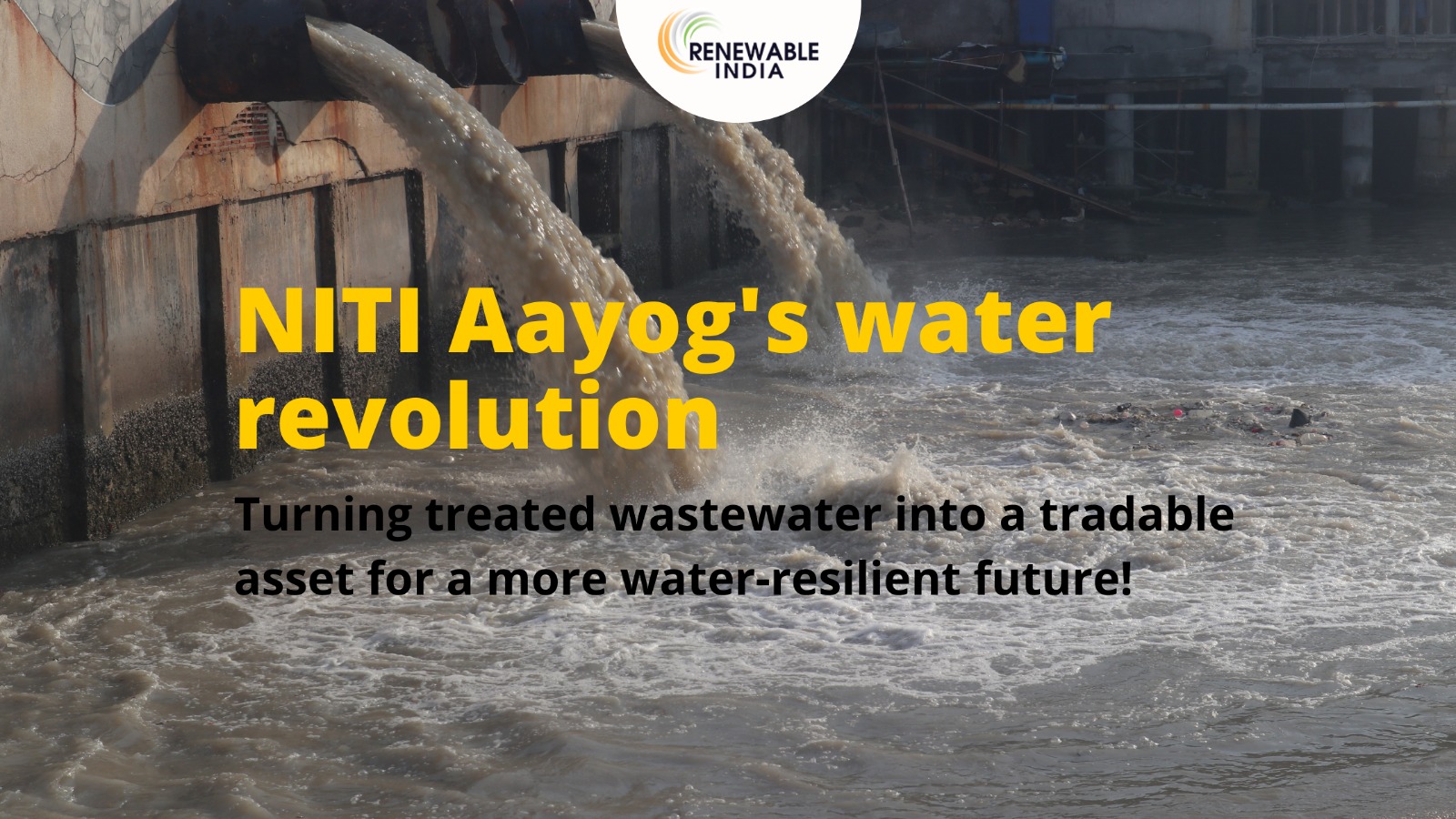
Water is undoubtedly one of the most precious resources on our planet, and ensuring its efficient use and conservation is crucial for a sustainable future. Like many other nations, India is struggling with the shortage, pollution, and wasteful use of water.
The Indian government’s think tank, NITI Aayog, has proposed a ground-breaking solution to address these issues by allowing trading of treated wastewater. By treating water as a commodity rather than just a public good, this novel method seeks to motivate and promote efficient water use. We will explore this idea further in-depth in this blog, looking at its potential advantages and ramifications.
The key to understanding the proposed initiative is to think of treated wastewater as a valuable resource that can be traded on a regulated market. Recognising water as a commodity raises its worth, encouraging more responsible use habits. Through transparent transactions made possible by the trading platform envisioned by NITI Aayog, industries, municipalities, and the agricultural sector will be able to purchase treated effluent from treatment plants, easing the burden on freshwater resources.
A key component of this idea is the creation of an Independent Regulatory Authority (IRA) with statutory authority. The IRA’s responsibility would be to establish appropriate pricing and allocate treated wastewater. The IRA serves as a watchdog against exploitation and encourages responsible water management across industries by guaranteeing equitable and effective water distribution.
NITI Aayog’s proposal to permit the trading of treated wastewater is an important development for India’s sustainable water management. The programme encourages the effective use of water resources by classifying water as a commodity and establishing a transparent trading market. Additionally, the creation of an Independent Regulatory Authority guarantees equitable price and allocation, avoiding exploitation and encouraging responsible water practices.
India stands to gain a lot from this novel strategy, including better climate resilience, economic growth, less pollution, and water conservation. However, cooperation between stakeholders, ongoing technological breakthroughs, and public understanding of the significance of managing water as a precious resource are necessary for successful implementation. This initiative has the potential to change how we manage water and provide a more sustainable and water-secure future for future generations with a concerted effort.
Aloe E-Cell: Powering a Sustainable Future with Eco-Friendly Aloe Vera Batteries
Leave a Reply